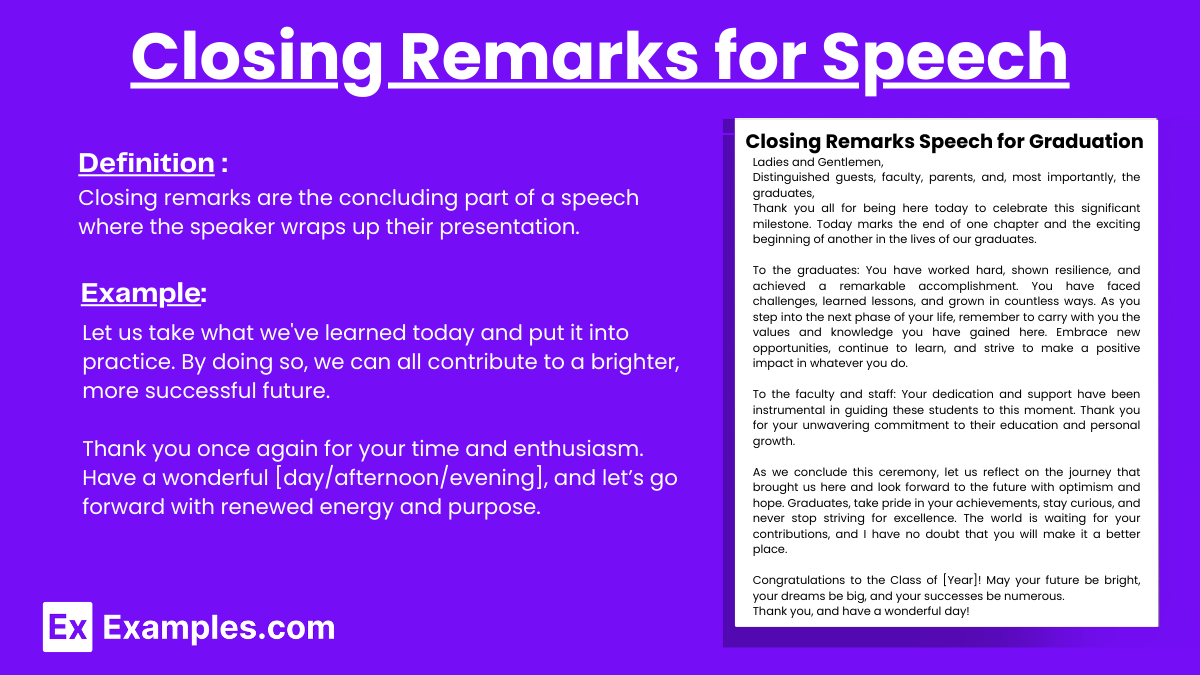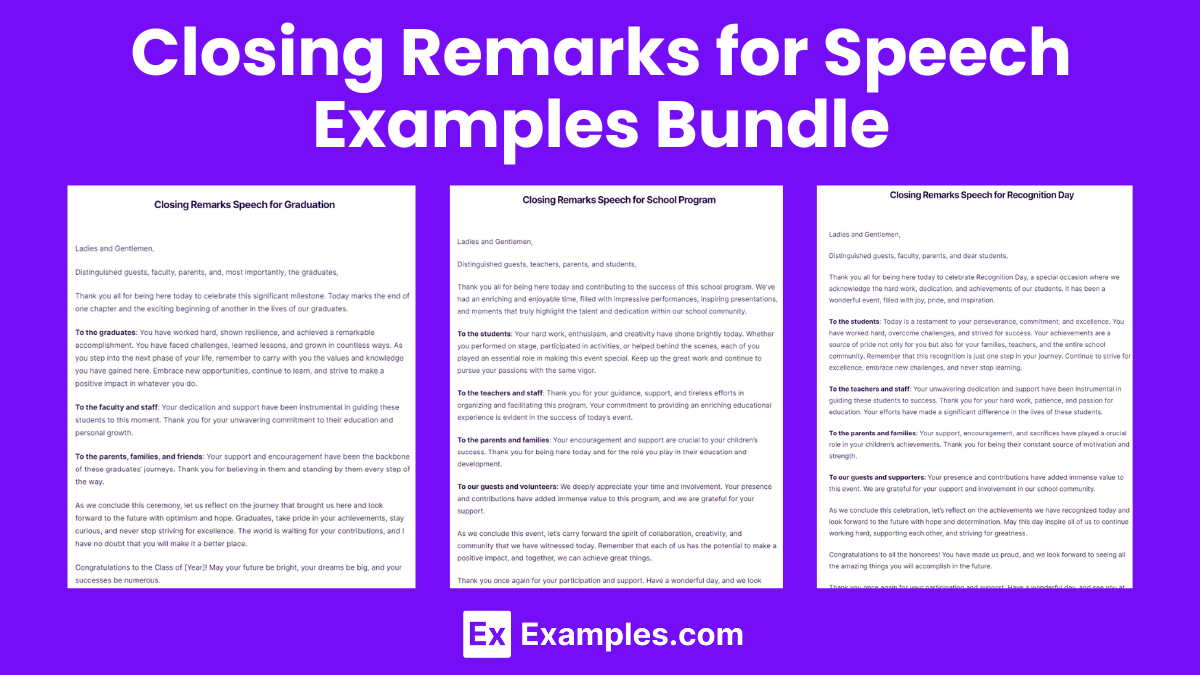

Closing remarks are the concluding part of a Speech where the speaker wraps up their presentation. This section typically summarizes the key points discussed, reinforces the main message, and leaves the audience with a final thought or call to action. Closing remarks are important as they provide a sense of closure and can have a lasting impact on the audience.
Closing remarks are the final statements in a speech, where the speaker brings everything to a conclusion. This part of the speech is designed to recap the main points, emphasize the central message, and offer a final takeaway for the audience. It ensures that the speech ends on a strong note, leaving a lasting impression on the listeners.

Briefly recap the main ideas or arguments presented in your speech.
Example: “Today, we discussed the importance of time management, practical strategies to implement it, and the benefits it brings.”
Emphasize the core message or takeaway you want the audience to remember.
Example: “Remember, effective time management is crucial for reducing stress, increasing productivity, and achieving your goals.”
Encourage the audience to take specific actions or steps based on your speech.
Example: “I encourage each of you to start using a planner, set specific goals, and tackle your most important tasks first.”
Express gratitude for their time and attention.
Example: “Thank you all for your attention and engagement today.”
Finish with a powerful quote, a thought-provoking statement, or an inspiring note.
Example: “As the saying goes, ‘The bad news is time flies. The good news is you’re the pilot.’ Make the most of your time and steer your life towards success.”
Today, we’ve explored the importance of effective time management, discussed practical strategies to implement it, and highlighted the numerous benefits it brings. Remember, managing your time well is crucial for reducing stress, increasing productivity, and achieving your goals.
I encourage each of you to start using a planner, set specific goals, and tackle your most important tasks first. By doing so, you will take control of your time and pave the way for a more balanced and successful life.
Thank you all for your attention and engagement today. As the saying goes, “The bad news is time flies. The good news is you’re the pilot.” Make the most of your time and steer your life towards success.
Thank you!